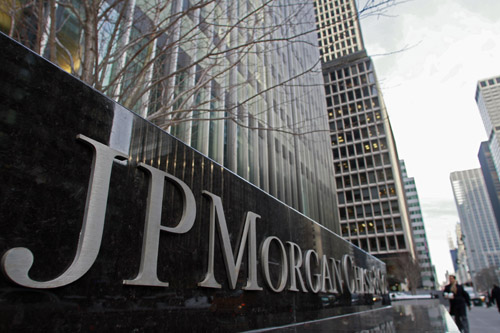
This post originally appeared on Change.org's Human Rights blog.
If you knew your family savings or retirement funds were financing a government’s genocidal campaign, would you keep sending money?
JPMorgan Chase is faced with this question right now.
Next month, JPMorgan Chase’s shareholders will decide whether they want the company to adopt a genocide free investing policy and avoid investing in companies that “substantially contribute to genocide or crimes against humanity, the most egregious violations of human rights.”
So far, the financial services firm has been defensive, filing a “no action” request to the Securities and Exchange Commission in a bid to avoid putting a potential genocide-free policy to a vote. The SEC denied the request.
On its website, JPMorgan Chase touts its strong corporate social responsibility policies, with a human rights policy that claims to avoid backing offenders.
But the company’s holdings in PetroChina, worth $1.3 billion, are a stark contradiction. “PetroChina, through its closely related parent, China National Petroleum Company, is internationally recognized as the worst offender helping fund the Government of Sudan's genocide in Darfur,” states the shareholder proposal.
That the question is up for a vote at all marks a success for the volunteer-run group Investors Against Genocide.
Investors Against Genocide works to convince financial firms to commit to ensuring that their investments do not enable human rights crimes. The group’s shareholder proposal with JPMorgan Chase is just one in a series of actions spearheaded to raise awareness about the link between U.S. firms and state-sponsored violence – particularly in the Darfur region of Sudan – and to compel investors to take responsibility for how their money is spent.
“Americans, once they become aware, do not want their pensions and family savings connected to genocide,” said Eric Cohen, chairperson of Investors Against Genocide. “While financial institutions may oppose it, ordinary investors who see the proposal will vote their values and support genocide-free investing. Thanks to the ruling by the Securities and Exchange Commission, shareholders at JPMorgan Chase will have a rare opportunity to vote on this important social issue.”
According to research conducted by KRC Research and highlighted by Cohen in a publication last year, 88 percent of Americans don’t want their investments tied to genocide. Nearly as many said they would withdraw their investments from U.S. firms who do business with companies directly or indirectly supporting genocide.
But while the numbers suggest shareholder proposals like those supported by Investors Against Genocide would have sweeping successes, in reality the process for voting in new policies often skews toward the status quo. Reporting on previous campaigns, Investors Against Genocide frames the outcome in a positive light: Proposals “submitted to a variety of mutual funds from companies such as Fidelity and Vanguard have earned as much as 31 percent of the votes despite strong opposition from management and voting rules which significantly favor management.”
The task of putting the genocide-free issue on the agenda of shareholders in a meaningful way is a challenging one, but Cohen sounded resolute.
“Since JPMorgan holds a shareholder meeting every year, unlike most mutual funds, we’ll now have an annual opportunity to raise awareness of the problem of JPMorgan’s large holdings in PetroChina and the absence of a policy at JPMorgan to avoid investments tied to genocide,” he said.
Investors Against Genocide’s message is clear: JPMorgan Chase, stop supporting companies that finance genocide now and adopt a genocide free investing policy, or expect to keep hearing from us until you do.
Photo: JPMorgan Chase headquarters in New York City (AP)

